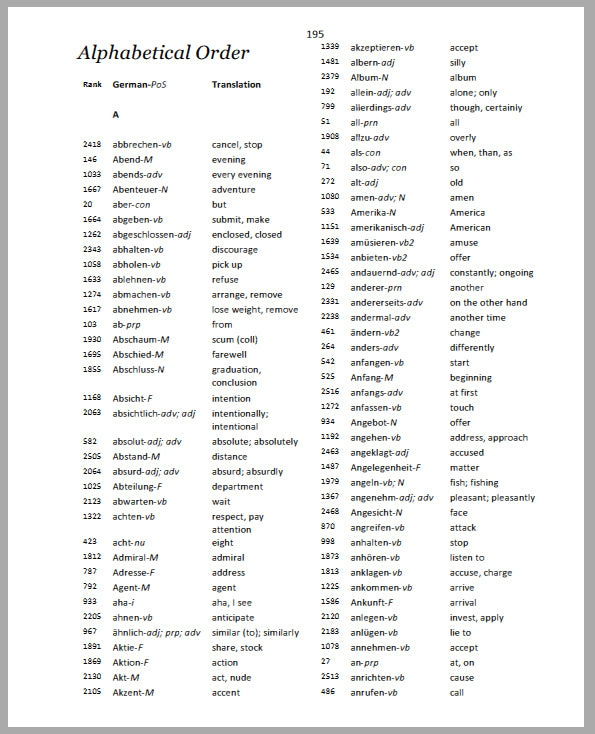

"Besides," the teacher says, "computers will make translations automatic very soon." I try to explain to the teacher that learning a language is not mechanical, that words and phrases open doors inside the mind. I imagine wearing English like a vestment, a shawl to connote ceremony. In the late 14th century to invest meant to put on official robes. So, wouldn't all the time and effort that might go into learning, say, German, be better spent on more math, or shop, or sports, or on gaining greater skill in pretty much any other enterprise? After all, the teacher argues, English is spoken pretty much anywhere most of his students would ever want to go. Their schweigen is not a refusal, it is an act-not a "no" but a "yes," not a "failure" but a "win."Īn American high school teacher asks, with disarming earnestness, why I would think it important for American students to invest in learning any language other than English. In German, to silence is intransitive: something you do, but not something you can do to someone.ĭer Wald steht schwarz und schweiget, go the words of a still-popular German song, written by Matthias Claudius in 1779, about the risen moon: "The woods stand black and silent."Įxcept that these woods, in German, are not "standing silent," but they "stand and silent," as in "execute an action," and what they do, as they stand, is to emit no sound, convey no message they fail to chatter or to sing. In English, the verb to silence takes a direct object, someone or something to be shut up. Imagine if silence were something you did, instead of something you heard (or didn't hear).


English remains the most beautiful of languages.


 0 kommentar(er)
0 kommentar(er)
